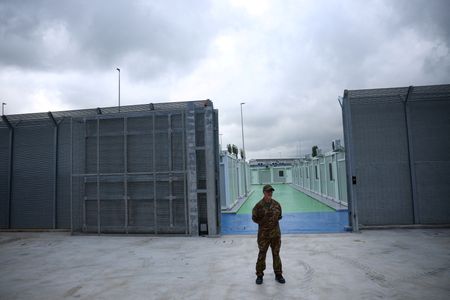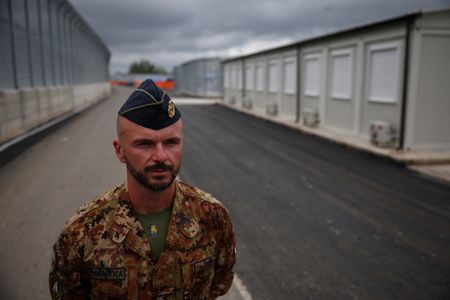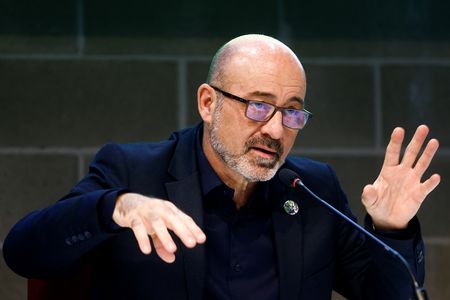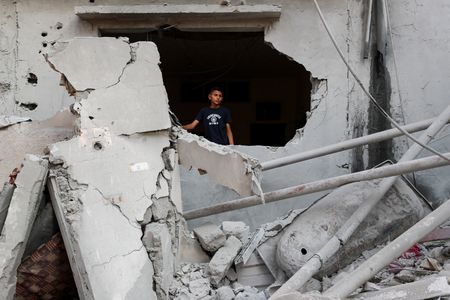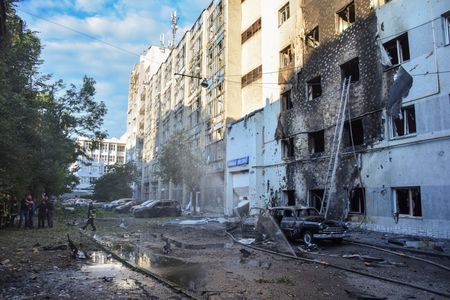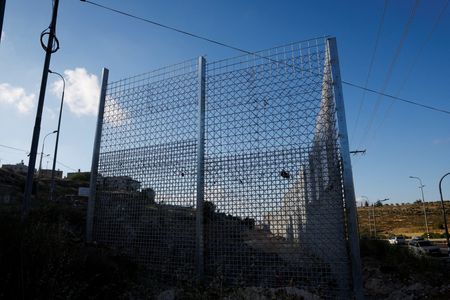By Angelo Amante
ROME (Reuters) – Italy will transform a detention centre it built in Albania for sea migrants into a repatriation hub for failed asylum seekers, in a bid to overcome judicial hurdles that have prevented use of the facility, the Italian government said on Friday.
The Albanian site is a key plank of Prime Minister Giorgia Meloni’s policy of curbing immigration, but Italian judges have repeatedly annulled the transfer of sea migrants there, on the basis of a ruling by the European Union’s Court of Justice.
On Friday, Meloni’s cabinet adopted a decree making it possible to deport to Albania migrants who are in Italy with a pending expulsion order, in an attempt to find a new use for the centre, which has been idle for months.
“That will allow us to immediately reactivate (it),” said Interior Minister Matteo Piantedosi, referring to the detention camp in the village of Gjader, built alongside another facility for identification purposes in the port of Shengjin.
Italy has a poor record on the repatriation of illegal immigrants. In 2023, just over 4,000 were forcibly sent home, roughly a third of the number returned by France and Germany, official data show.
Meloni built the camps in Albania hoping they would be able to process some 36,000 male asylum applicants per year from a government list of safe countries, with the idea of swiftly repatriating them after the likely rejection of their requests.
The ECJ dealt a blow to the plan saying last year that migrants could not be repatriated if any part of their home nation was considered unsafe, in a ruling that was not originally related to Italy.
But Italian judges invoked it to state that it was enough to stop transfers to Albania, and referred the matter to the ECJ for further clarification. The Luxembourg-based court is expected to weigh on the matter in the coming weeks.
Friday’s decree is an attempt to salvage the scheme regardless of what EU judges may decide, analysts say, although some commentators say the change of use may require the agreement of Albania.
“I believe they want to make it work and not give the impression that they wasted public money,” Salvatore Curreri, a constitutional law professor at Enna Kore university, told Reuters.
Initial estimates said Italy’s protocol with Albania would cost more than 600 million euros ($646 million).
($1 = 0.9283 euros)
(Reporting by Angelo Amante, editing by Alvise Armellini and Alex Richardson)

